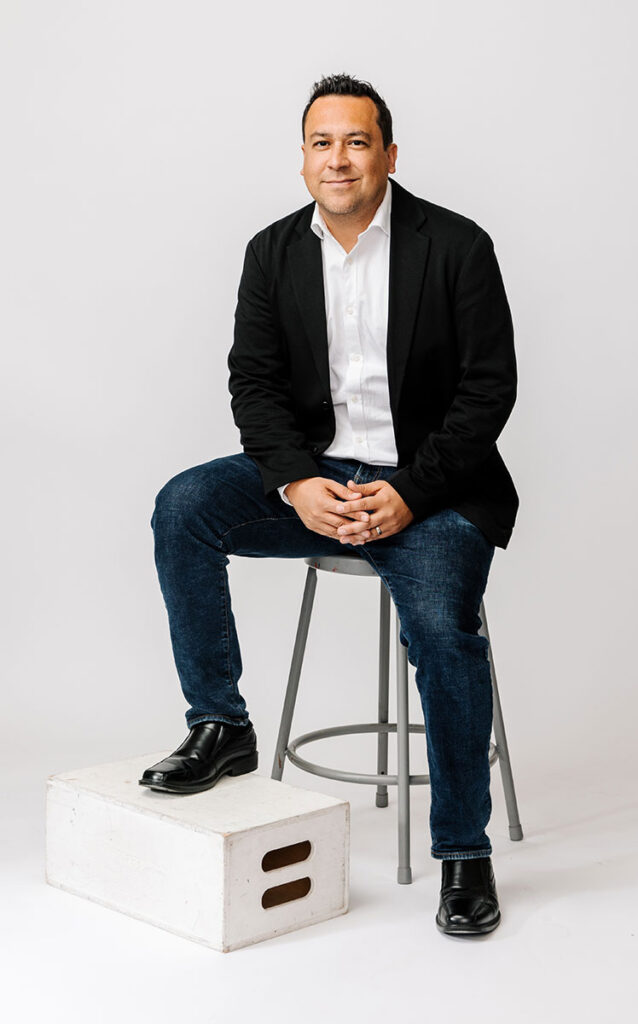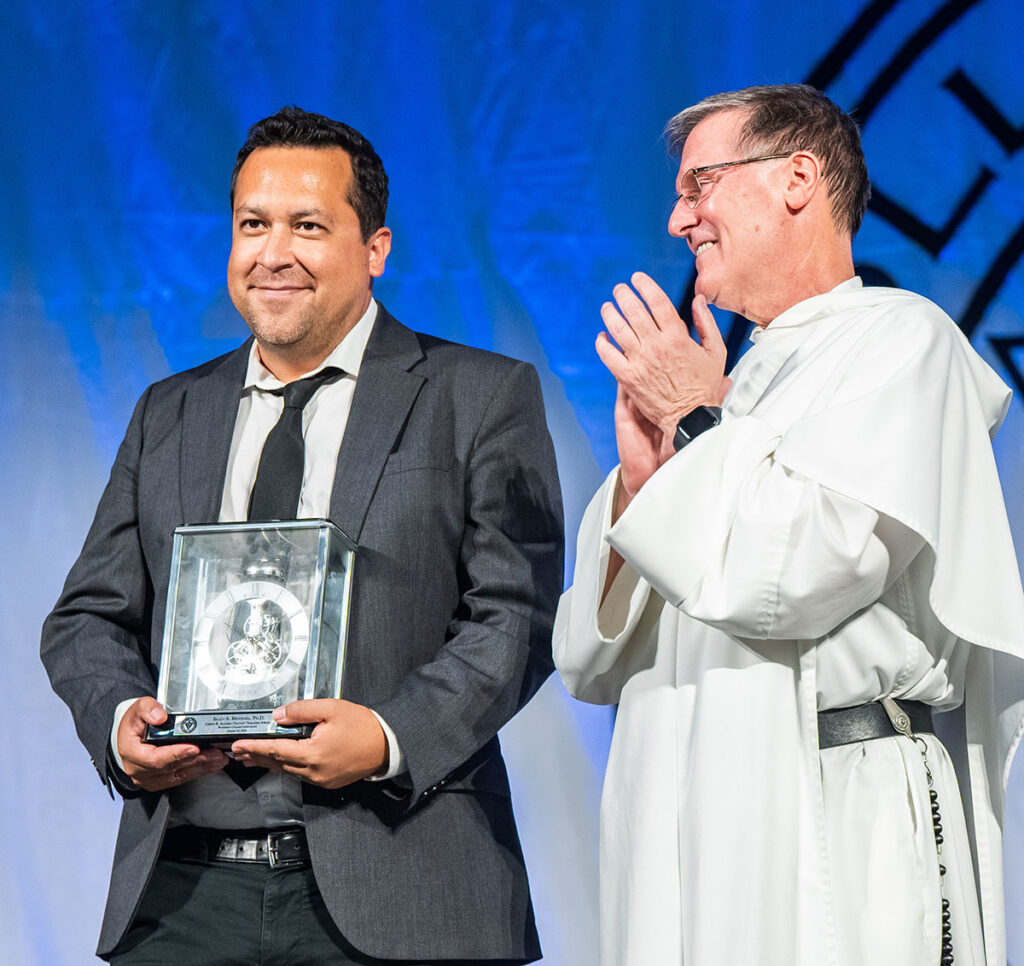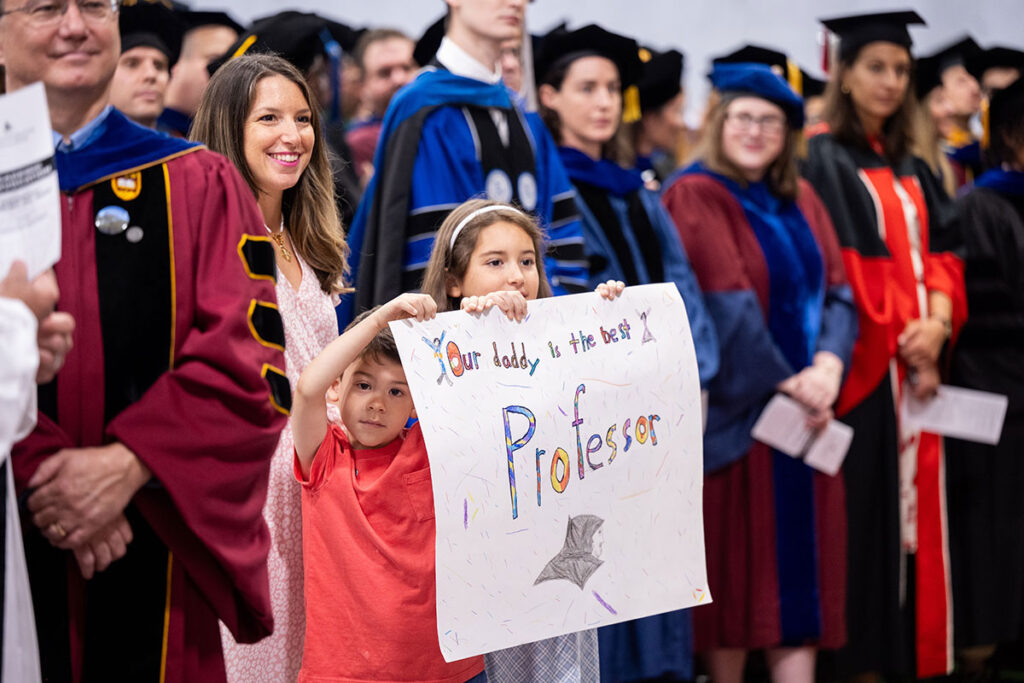Saaid Mendoza, Ph.D., teaching award recipient, is a mentor to students
By Martha Young
For Saaid Mendoza, Ph.D., associate professor of psychology, relaying information to his students is just a part of his job. He’s more than a scholar. He’s also a mentor and support system. Because of this approach, Mendoza was awarded the Joseph R. Accinno Faculty Teaching Award, which is presented annually to the faculty member who best exhibits excellence in teaching, passion and enthusiasm for learning, and genuine concern for students’ academic and personal growth.
Mendoza’s vision for teaching took shape early in life when his family moved from Mexico to a predominantly white suburb of Phoenix, Arizona. His experiences learning English as a child and his sense of “otherness” sparked a passion for education, fueled by his parents and grandfather, along with a keen interest in race relations.
“As an immigrant, I learned early on that education could be the great equalizer and felt dedicated to teaching so that I could one day have the same impact on others that my mentors had on me,” Mendoza said. “My students bring me so much joy and I am incredibly proud of them. I learn just as much from them as they do from me. My goal is never to teach them facts, but instead challenge them to think critically. More importantly, I want to change the way they see themselves and the world.”

While he has made a significant impact on campus as a psychology professor, Mendoza didn’t start his college career with the intent of majoring in that discipline. He credits a Rice University social psychology professor, Mikki Hebl, for changing his life on many levels.
“I didn’t quite understand why someone so important would invest time in me,” said Mendoza, a 2004 Rice graduate, at this fall’s Academic Convocation. “But I knew I was grateful for her unwavering support. This is when I first appreciated the value of being an ally.”
After receiving his Ph.D. in social and organizational psychology from New York University, Mendoza taught at Amherst College for four years. He joined Providence College in 2014, feeling a sense of “providence” that PC was the place to offer him a different challenge.

Mendoza speaks passionately about mentoring his students just like his Rice professor did for him. A testimonial from a student during the Accinno Award nomination process is just one measure of that success.
“He is transformative and inspiring … to all of the students he teaches, which stems from a true passion for the wellbeing and success of all whom he encounters,” the student said. “I do not think that I can adequately convey the effect that Dr. Mendoza has had on my academic career and my life as a whole. He has pushed me to perform beyond what I knew I was capable of, supported me through my most stressful points, and helped me to uncover my true passions for my professional and personal future. I owe so much of my success at Providence College to Dr. Mendoza.”
While his passion for teaching remains steadfast, Mendoza has recently taken on a new role at PC. He is now the interim assistant vice president of institutional diversity following the appointment of Quincy Bevely, Ph.D. to vice president.
“Diversity is often seen as a check box. My success in teaching speaks to disrupting that narrative,” Mendoza said. “The DEI role gives me more capital in the classroom to make a meaningful impact.”

Recognized for his advocacy and leadership in addressing implicit bias, discrimination in the workplace, and promoting allyship, Mendoza has developed relevant courses, such as Social Psychology, Industrial & Organizational Psychology, and Psychology of Gender.
In addition, he is director and principal investigator in the Social Perception and Attitudes Lab, which investigates psychological questions related to issues of group-based stereotyping and discrimination. The research results, often co-written by students, have been published in peer-reviewed journals and presented at conferences.
He also is a Riccobono Academic Resilience Faculty Fellow, advocating for mental health awareness on campus and reducing its stigma.
Mendoza believes that social psychology can help kids who “have been socialized and encouraged to not talk about things like politics and religion.”
“There’s too much emphasis on the ‘what’ instead of the ‘why,’” he said. “There is too often a reactionary tendency to ‘call out’ rather than ‘call in’ those of opposing views. Ultimately, I aspire to ‘calling up’ others so that we reach a point of mutual respect for differing opinions.”





